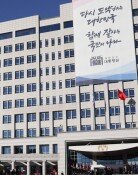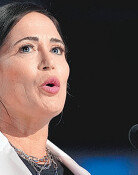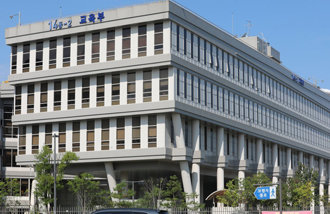Emerging Asset Management Firms for Overseas Resource Development
Emerging Asset Management Firms for Overseas Resource Development
Posted June. 26, 2007 03:16,
Asset management is becoming specialized. For example, asset management firms developing overseas resources are expected to be set up as early as within this year. Also, recently, firms which focus on real assets such as agricultural and marine products, minerals, and real estate have been established.
The Financial Supervisory Commission (FSC) said on June 25, Recently, Fornet, which specializes in resource development and financial derivatives, has applied to establish an asset management firm for overseas resource development. The FSC also added, Asset management firms aimed at developing overseas resources will be increased in numbers as the Ministry of Commerce, Industry and Energy (MOCIE) is encouraging the establishment of asset management companies by revising the Overseas Resources Development Business Act. Kim Jin-do, president of Fornet, explained, Once receiving approval, we intend to raise private equity funds worth 50 billion to 100 billion won which will be invested in a copper mine under development in Kazakhstan.
Under the revised law, the minimum capital requirement for asset management firms investing in developing overseas resources is lowered to three billion won from ten billion won. Also, the firms will enjoy tax incentives such as exemption of investment revenues for a certain period.
The MOCIE is actively encouraging the incorporation of these asset management companies to develop and secure major minerals by utilizing private capital in order to prepare for surging international raw material prices.
The government has set its goal to raise energy self-sufficiency rates of crude oil and natural gas to 18 percent by 2013 from 4.1 percent in 2005. However, many pointed out that it is difficult to achieve this without funds from the private sector considering the enormous budget for the energy development.
The New Renewable Energy Fund is a good example. KB Asset Management created the fund totaling 330 billion won for investment in photovoltaic power generation by using pension funds last month. In short, the fund was made in a way that the private sector is in charge of developing next generation energy and the government guarantees certain revenues.
Domestic financial institutions are also viewing resource development as a new investment. Korea Investment Trust Management raised 184.5 billion won with the Fund for Korea-Vietnam 15-1 Oil Field Overseas Resources, which was the first publicly raised fund for overseas resources last December. Also, KDB Asset Management offered shares for Global Clean Energy worth 27 billion won.
According to the Asset Management Association of Korea, special asset funds, including funds for overseas resources development, substantially rose to 4.938 trillion won as of June 25 from 1.310 trillion won at the end of 2005.
Now, two more companies apart from Fornet are said to be planning to establish asset management companies for overseas resource development, according to the MOCIE.
The financial authorities are pessimistic about the establishment of bond fund management firms which is nearing saturation, but optimistic about the foundation of asset management companies investing in real assets. For example, Myer Asset Management, which received approval of establishment this April, solely invests in real assets such as agricultural and marine products and minerals.
Korea Infra Asset Management Co. Ltd., Macquarie-IMM Investment Management Co. Ltd., and Macquarie Shinhan Infrastructure Asset Management Co. Ltd. focus on domestic social overhead capital. A representative of Daewoo Securities said, The financial industry is diversifying financial products such as real estate and resources to meet customers diverse investment needs. But it remains to be seen whether desirable results will be gained because investment experts in the field of resource development are not sufficient in the domestic market, and Korea is in the infant stage of asset management.
An official of the MOCIE pointed out, We must keep in mind that developing resources entails many investment risks. For example, the success rate of developing oil fields in the stage of exploration is only 15 percent, and it takes more than 20 years from exploration to production.
larosa@donga.com parky@donga.com







